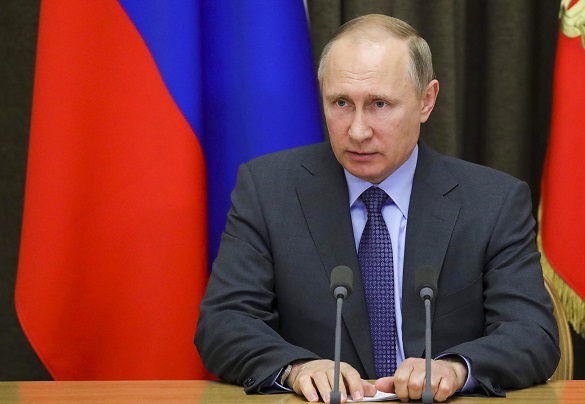Why is Putin coming to Paris?
Having announced Putin's visit to Paris, the Kremlin gave the new French leader an opportunity to correct the mistake made by his predecessor, Francois Hollande. The forthcoming meeting in Versailles is to prove that France has not lost its place among world's greatest powers.

Russian President Vladimir Putin is to visit France on May 29, where he is expected to have a meeting with France's new President Emmanuel Macron. Both Moscow and Paris have confirmed the plan.
However, when dealing with present-day France, nothing can be said for certain. In October of last year, Francois Hollande invited Putin to France and intended to open a Russian Orthodox cultural center in Paris together with the Russian president. Shortly before the meeting, Hollande started setting forth various conditions and dictate changes in the already agreed agenda of negotiations. In a word, Hollande treated the Russian president as a representative of a semi-vassal country, a former French colony.
As a result, the visit was canceled, which gave an opportunity to many Western observers to solemnly declare Vladimir Putin's isolation on the world stage. In France, however, Hollande was severely criticised for his move. The head of the Fifth Republic seemed to care less: Hollande wanted to show himself as a strong, resolute and principled leader, who could speak down to the Kremlin.
As a matter of fact, that move of Hollande became a manifestation of the inferiority complex that has been tormenting the French for a very long time. Overcoming this complex is a dream still unattainable for Paris. France still lives in memories of the great past and constantly struggles for a place in the world that would be worthy of France's glorious past.
Emmanuel Macron is concerned about this too. A trip to Berlin was the first thing he did as president. In Germany, Macron hoped to obtain a symbolic confirmation to his authorities from the master of Europe, German Chancellor Angela Merkel. Immediately afterwards, Macron went to Mali, a former French colony, where he visited the French military. This was also a symbolic move: Macron thus sought to confirm France's longstanding claims to preserve the military and political influence, vestiges of which remained after the collapse of the colonial empire. This influence (along with nuclear weapons and a permanent seat in the UN Security Council) is the main reason for claiming a "global role" that France seems to be destined to play.
Europe and its former colonies are two most important areas for Paris. Now Macron will need to show that France was admitted to the big league of the USA, Russia, China, and the UK.
London is exiting the EU, and Berlin may not understand Macron's contacts with the UK. Having a meeting with the Chinese administration is a very hard nut to crack. The Chinese will want Macron to explain clearly what he wants. Additionally, they will ask him to come to Beijing, which can be somewhat humiliating. As for the meeting with US President Trump, the billionaire will wonder what good France and Macron may bring for the USA. Is there a point for Trump to waste his time on Germany's ally, if he has already had a meeting with the German Chancellor?
Against such a background, a meeting with Russian President Putin looks like Macron's only chance to shine on the international arena. Emmanuel Macron will have an opportunity to correct his predecessor's mistakes.
In Paris, Putin will take part in the opening of the museum of Peter the Great. Putin's consent displays his openness and sincere desire to maintain normal and possibly friendly relations with Russia on the world stage.
Dmitry Nersesov
Pravda.Ru
Read article on the Russian version of Pravda.Ru
Subscribe to Pravda.Ru Telegram channel, Facebook, RSS!





